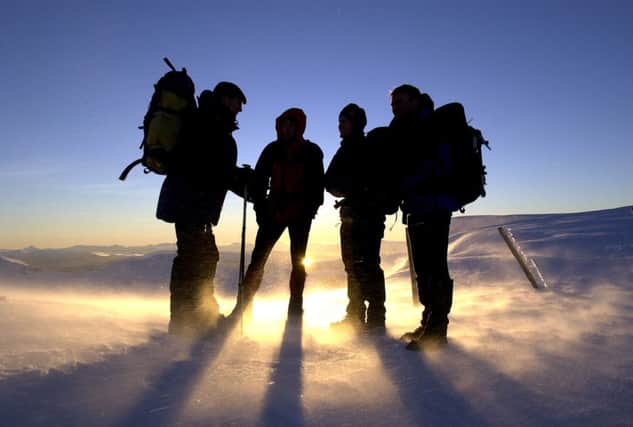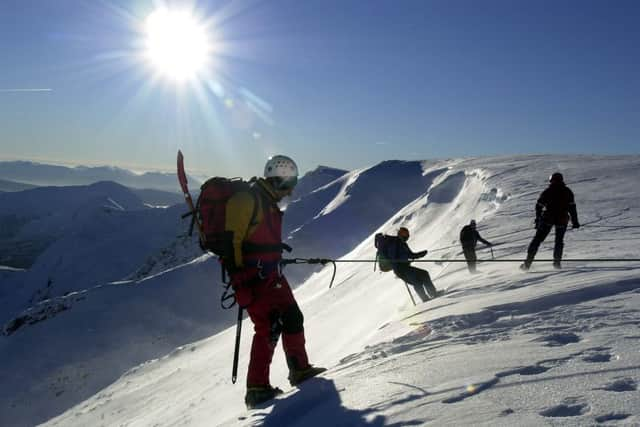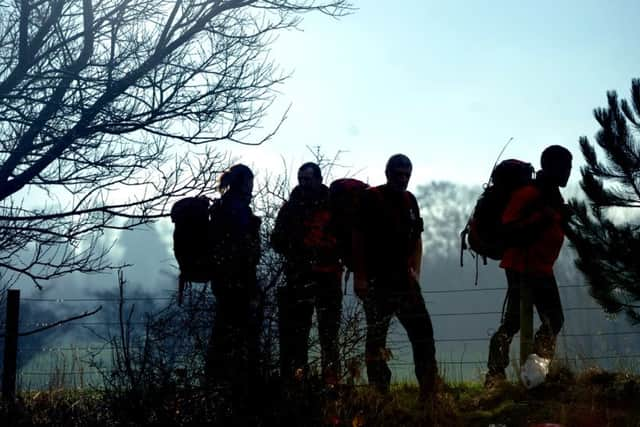A love of the outdoors inspires mountain rescue volunteers


James Edwards, a father of two and a member of Dundonnell mountain rescue team (MRT), died in hospital after falling while exploring the Fisherfield Forest mountains on August 13.
He was rescued by his friends in Dundonnell and Torridon MRTs.
Advertisement
Hide AdAdvertisement
Hide Ad“This was an immensely difficult rescue for us as a team as the casualty was a fellow team member,” the group said in a statement.


Like all mountain rescue teams in Scotland, Dundonnell is made up of volunteers who give up their own time to assist the emergency services.
They come from all walks of life, but are united in their love of the outdoors.
Justice secretary Michael Matheson only stepped down from the Ochils MRT due to the demands of his day job.
“Having been a member of a mountain rescue team for over 17 years I have a great deal of respect for those who serve,” the MSP said.


“Team members can often find themselves out on the hills in difficult conditions, day or night.
“We are fortunate to have such a world class mountain rescue service and as a government we will continue to work with them to support the work they provide.”
Latest figures show that in 2014 Scottish MRTs assisted 608 people over a total of 552 incidents - committing nearly 22,000 man hours to assisting those in need.
Advertisement
Hide AdAdvertisement
Hide AdBased in Aviemore, Scottish Mountain Rescue (SMR) is a registered charity that represents 23 of the 27 MRTs working across the country.


“Each team has their own base, own equipment, own vehicles - they are independent, stand-alone organisations,” said SMR general manager Andy Rockall.
“Legally, it is the responsibility of the police to resolve reported incident. They police then delegate to the volunteers.
“We support them by raising money and representing them at meetings with potential sponsors and local government.
“Every team in Scotland has terrain above 600m on their patch. Every where in the country is fully covered, with the exception of Orkney and Shetland.”


Founded in 1965, SMR represents three police teams, an RAF team and Scottish Cave Rescue as well as more than 800 volunteers.
Rockall said there was a variance in the level of activity among the teams. “Some are busy throughout the year, not just the summer months,” he added.
Like all voluntary services, fundraising is vital to the continued work of MRTs. While all volunteers are fully trained, the standard of base can vary drastically.
Advertisement
Hide AdAdvertisement
Hide Ad“There is at least one team operating from what is effectively a broom cupboard,” said Rockall. “So money is always important.
“The cash value of the kit a volunteer is wearing when out on the mountains is around £3,000. Multiply that by the number of volunteers in each team, and the number of teams in Scotland, and you’ve got a big capital cost right there.
“That’s before you put fuel in the vehicles and heat the bases. We’re constantly fundraising.”
Recruitment is less of an issue for some teams. In certain areas, there are so many potential volunteers that waiting lists are in operation. But more remote teams struggle to attract new members.
“Each team has their own requirements to become a member,” continued Rockall. “As a basic, new members will be expected to be able to look after themselves in the worst weathers. And the weather can get really foul if you’re above 600m.
“But all volunteers are outdoors people. They enjoy being on the mountains.
“They need understanding families and employers. It’s not unusual for members to walk out of the theatre, or the office to respond to a call.
“They can be called out at 10pm on a Friday night and not return home until 10am the next day. They are deeply committed.”
